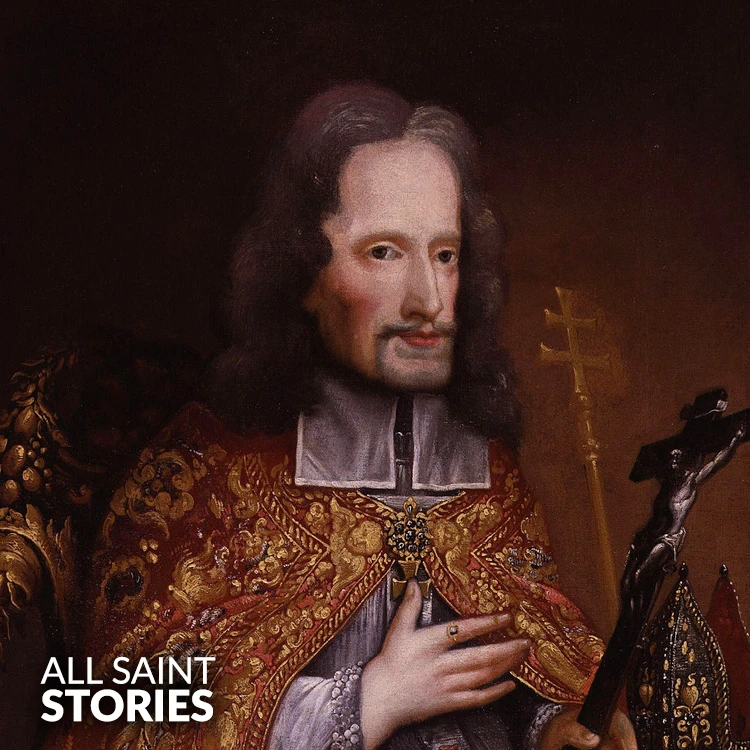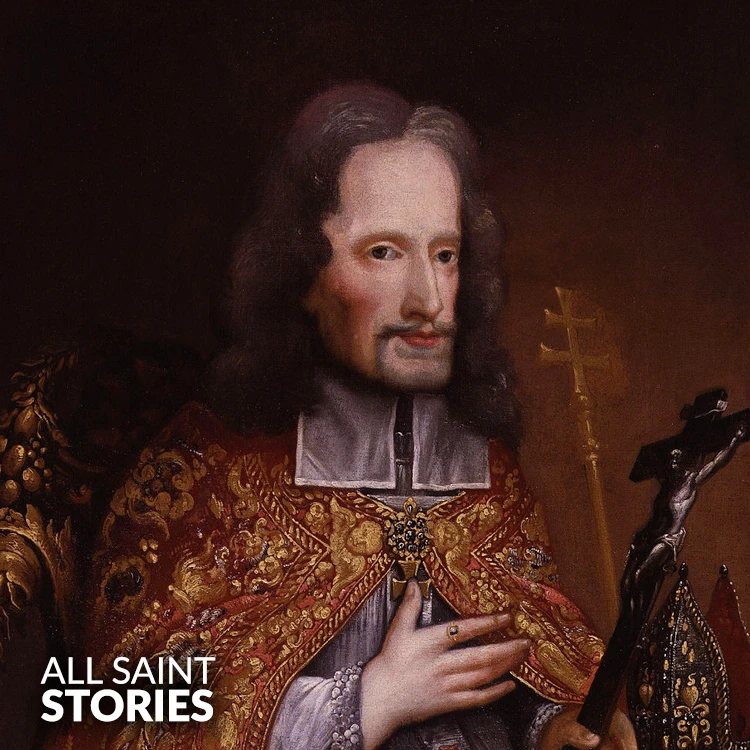Saint Oliver Plunkett, martyr for the faith, who remained steadfast in the face of persecution, pray for us that we may have the courage to stand firm in our beliefs, and the wisdom to follow God's will with unwavering devotion. Help us to live with compassion and love, and to always seek justice and truth. Through your intercession, may we be granted the grace to endure trials and live our faith fully. Amen.
ST. OLIVER PLUNKET
ST. OLIVER PLUNKET

St. Oliver Plunket, Archbishop of Armagh, was the last martyr of the Catholic Reformation in Ireland. He was executed by hanging in 1681 for his unwavering faith and his efforts to protect the Catholic Church in Ireland.
St. Oliver Plunkett was born on November 1, 1625, near Oldcastle in County Meath, Ireland. He lived during one of the most turbulent periods in Irish and British history, marked by religious conflict and severe oppression of Catholics under English rule. He was sent to Rome to study for the priesthood and was ordained in 1654. Plunkett remained in Rome for some years, serving as a professor of theology and canon law, and gained a reputation for intelligence, dedication, and diplomacy.
In 1669, after Catholicism had endured years of suppression in Ireland, Oliver Plunkett was appointed Archbishop of Armagh and Primate of All Ireland. Upon his return, he faced immense challenges: the Church was in disarray, there were few priests, and public Catholic worship was often illegal. Plunkett traveled extensively, often on foot, to visit and reform parishes, confirm thousands of Catholics, ordain priests, and restore ecclesiastical discipline. Despite the dangers, he maintained an active presence in the country, encouraging peace, education, and spiritual renewal.
His efforts brought him into conflict with both political authorities and rival factions within Ireland. In 1679, during the hysteria of the so-called Popish Plot—a fabricated conspiracy alleging a Catholic plan to assassinate King Charles II—Oliver Plunkett was arrested. He was imprisoned in harsh conditions and subjected to a deeply flawed legal process. Though there was no credible evidence against him, he was denied a fair trial in Ireland and was instead transported to London, where anti-Catholic sentiment was widespread.
At his trial, Plunkett was charged with treason, supposedly for conspiring to bring a French army into Ireland and inciting rebellion. The prosecution relied on the testimony of discredited witnesses. Despite his eloquent and reasoned defense, he was convicted and sentenced to death. On July 1, 1681, he was executed at Tyburn in London by hanging, drawing, and quartering—the last Catholic martyr to suffer this brutal fate in England.
Even those who had opposed him acknowledged the injustice of his trial and execution. Over time, Oliver Plunkett's legacy as a man of peace and a devoted shepherd of his people grew stronger. He was beatified in 1920 and canonized by Pope Paul VI on October 12, 1975, becoming the first Irish saint canonized in over 700 years. His preserved head is venerated today in St. Peter’s Church in Drogheda, Ireland, while his body lies in Downside Abbey in England.
St. Oliver Plunkett is remembered not only for his martyrdom but also for his tireless work to unify and strengthen the Catholic Church during a time of persecution. His life is a powerful example of courage, forgiveness, and enduring faith in the face of adversity.
Video Not Found
The information on this website is compiled from various trusted sources. While we aim for accuracy, some details may be incomplete or contain discrepancies.
If you notice any errors or have additional information about this saint, please use the form on the left to share your suggestions. Your input helps us improve and maintain reliable content for everyone.
All submissions are reviewed carefully, and your personal details will remain confidential. Thank you for contributing to the accuracy and value of this resource.
Credits & Acknowledgments
- Anudina Visudhar (Malayalam) – Life of Saints for Everyday
by Msgr. Thomas Moothedan, M.A., D.D. - Saint Companions for Each Day
by A. J. M. Mausolfe & J. K. Mausolfe - US Catholic (Faith in Real Life) – Informational articles
- Wikipedia – General reference content and images
- Anastpaul.com – Saint images and reflections
- Pravachaka Sabdam (Malayalam) – Saint-related content and insights
We sincerely thank these authors and platforms for their valuable contributions. If we have unintentionally missed any attribution, please notify us, and we will make the correction promptly.
If you have any suggestion about ST. OLIVER PLUNKET
Your suggestion will help improve the information about this saint. Your details will not be disclosed anywhere.
© 2026 Copyright @ www.allsaintstories.com





 English
English
 Italian
Italian
 French
French
 Spanish
Spanish
 Malayalam
Malayalam
 Russian
Russian
 Korean
Korean
 Sinhala
Sinhala
 Japanese
Japanese
 Arabic
Arabic
 Portuguese
Portuguese
 Bantu
Bantu
 Greek
Greek
 German
German
 Dutch
Dutch
 Filipino
Filipino